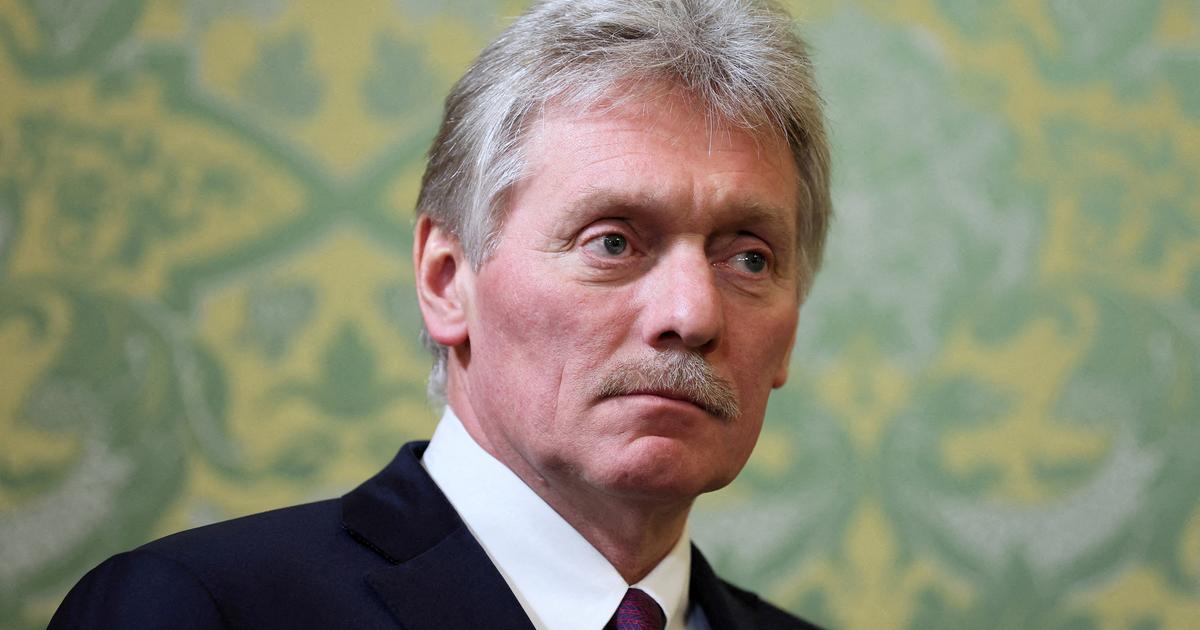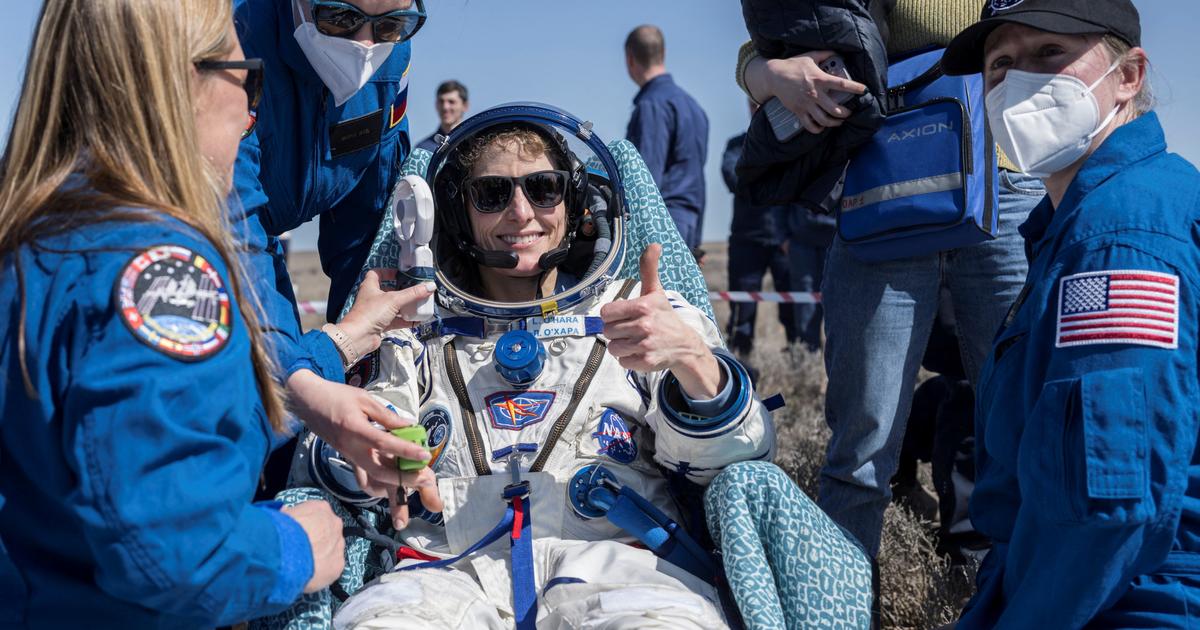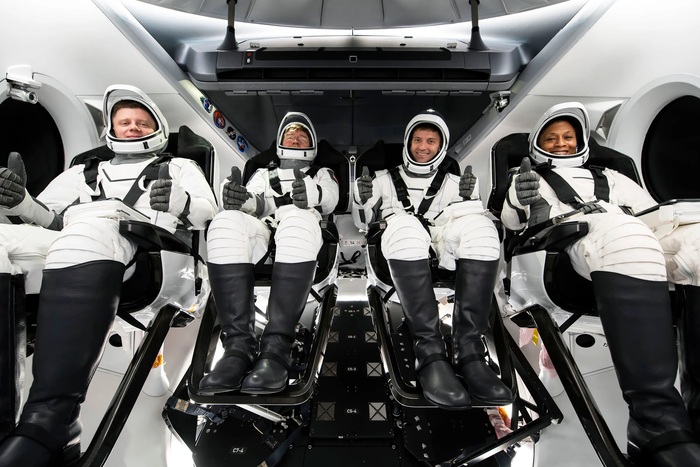Ever since humanity set out to explore it, space has been a political playground.
In the context of the Cold War, the space race was of such importance that investment in the sector reached stratospheric levels.
This made it possible to achieve, in the interval between 1957 and 1969, some of the most outstanding milestones in history, such as the putting into orbit of the first artificial satellite, the first trip to space or the first moon landing.
The implications of space activity are also political: leading exploration means being at the forefront of the technological race, which affects all areas of life.
However, the rules of the game are no longer those of the Cold War.
Space exploration has lost relevance in the eyes of governments and, with it, funds: the percentage of the federal budget allocated to both NASA and Roscosmos, the Russian space agency, is almost ten times less than it was in the sixties.
But as a counterpart to the budget cuts, the space strategy has taken a cooperative turn, in a diplomatic dance in which the great powers no longer step on each other's feet.
The International Space Station, successor to the Russian Mir base and coordinated by the US, Russia, Japan, Canada and the European Space Agency (ESA), which brings together 22 countries, is the culmination of this collaboration model .
Its creation in 1998 not only marked a turning point in relations between space agencies,
but it has allowed an unimaginable scientific advance.
It has been visited by more than 253 astronauts —including the Spanish Pedro Duque— and more than 3,000 experiments have been carried out in microgravity conditions, which have led to scientific advances applicable both on Earth and in future long-term space missions.
The problem is that even if the work of Russian rockets were supplied, it is not clear to what extent the ISS would remain operational if Roscosmos left the complex.
However, the 420-tonne International Space Station (ISS) is now hanging in the balance.
The Russian invasion of Ukraine has truncated the cooperation strategy: in the framework of the sanctions against the Putin regime, countries from all over the world are cutting ties with Russian science.
At the European level, the EU has excluded Russia from its two most important research programs:
Horizon Europe
and
Horizon 2020
.
In Spain, the Minister of Science and Innovation, Diana Morant, has announced the suspension of all Spanish projects with Russian participation.
The rupture has also reached the space sector, where the most prominent example is the ESA's announcement to suspend
sine die
the ExoMars project.
This mission, which intended to send an explorer robot to Mars and had a budget of one billion euros, was scheduled for September this year.
For its part, Russia has canceled the sale of rockets to the US and the launch of Soyuz rockets from the ESA base in French Guiana, where it helped the European agency send satellites into space.
It is not surprising then the concern for the future of the ISS, where three American astronauts, a European astronaut and three Russian cosmonauts live today.
Russia already expressed in 2021 that it might discontinue its collaboration on the project beyond 2024 to focus on its own space fleet.
Now, catalyzed by the conflict, this interruption can come sooner than expected, putting the entire project in check.
Roscosmos is in charge of the ISS rockets, with which it provides orbital jerks - small pushes that lift the Station several kilometers at a time - and which are essential because, in its 400 km high orbit, the structure loses power gradually.
If it weren't for the Russian rockets, the loss of energy would cause the Station to descend an average of 50 km per year,
Roscosmos director Dmitri Rogozin claimed that space collaborations would return to normal only if sanctions were lifted.
Even if in the short term Russia chooses to continue on the ISS, it is necessary to look for alternatives to Russian resources.
“I doubt that such a collaboration will be sustainable for much longer,” says Claude Nicollier, a Swiss ESA astronaut who has spent more than a thousand hours in space.
The priority is to prevent the Putin government from trying to use it as a bargaining chip to reduce current sanctions against Russia."
This possibility gains strength after the director of Roscosmos, Dmitri Rogozin, stated on April 2 that space collaborations would return to normal only if the sanctions were lifted.
In order to achieve more autonomy in the face of Russian technology, Nicollier points out that both agencies and the private sector are trained to create rockets that provide orbital pull.
The problem is that even if the work of the Russian rockets were supplied, it is not clear to what extent the ISS would remain operational if Roscosmos left the complex.
The reason is that certain instruments crucial to the control of the Station are located in the Russian part of the structure, and the remaining astronauts would have to be able to operate them with ease.
For this reason, Nicollier is in favor of cutting the thread and dropping the Station in a controlled manner to focus on more remote horizons.
“ESA is an exploration agency;
it makes no sense for it to cling to control of near-Earth orbit, which we already know well,” he maintains.
His proposal is to let private companies build and maintain space laboratories in these orbits.
A) Yes,
government agencies would make use of these bases, but would save money that could be spent on more interesting and farther orbits around unknown objects.
In practice, however, this would imply delegating the management of near-Earth orbit to a few mega-corporations and, moreover, sacrificing the autonomy of the agencies, a scenario that undoubtedly carries its own risks.
Although the conflict with Russia casts doubt on the future of the ISS, it may serve to make the space agencies of the rest of the countries rethink the direction they want to give to their strategy.
The current situation shows that space activity, although far from Earth, does not escape what happens on it.
Politics is the engine of science, and remembering it is essential to understand both its possibilities for progress and its risks of stagnation.
Belén Yu Irureta-Goyena
is a predoctoral researcher at the Federal Polytechnic School of Lausanne.
You can follow
MATERIA
on
,
and
, or sign up here to receive
our weekly newsletter
.
Exclusive content for subscribers
read without limits
subscribe
I'm already a subscriber








